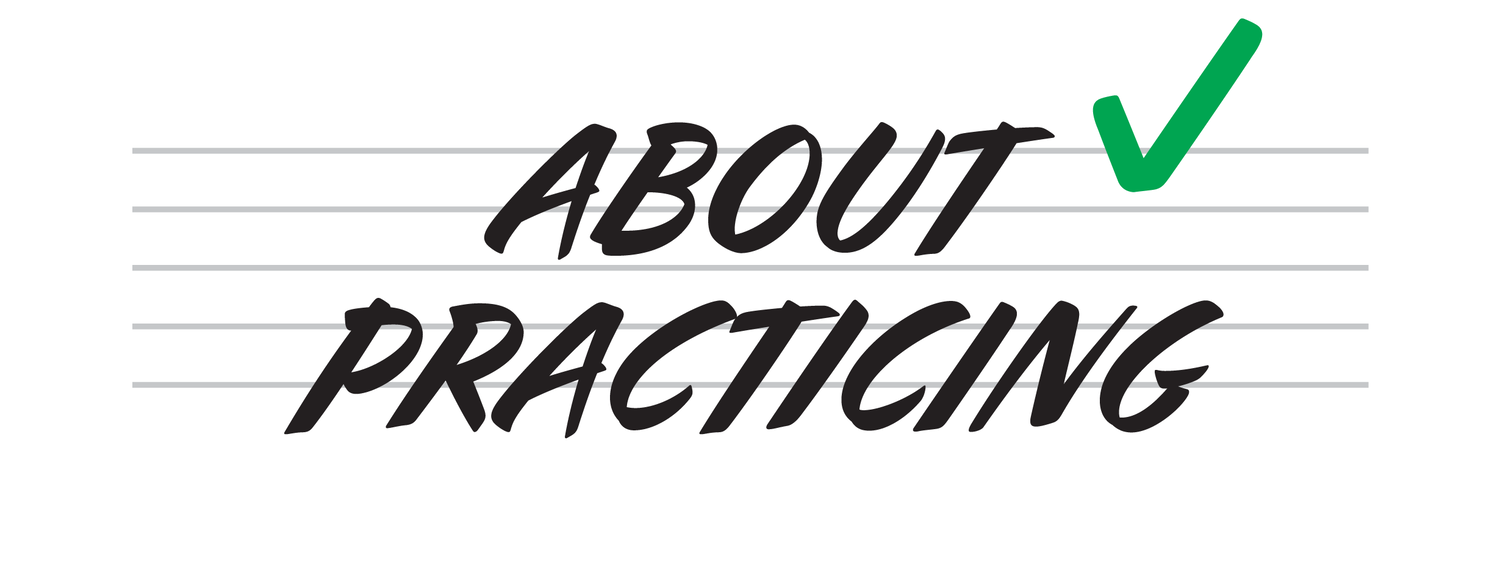Relentlessly positive
I have a guitar that was built by Matt Eich, of Mule Resophonic Guitars. It's a great guitar. Matt was being interviewed about learning to make guitars, and he said, “Failure is not part of the process. Failure IS the process.”
I thought, “That sounds like practicing.”
You spend so much time when you're practicing working on things you can't do yet. Progress is slow. It can feel like you're doing nothing but failing. It can be discouraging if you let it. Don't let it. That would be like letting water discourage you from swimming. What you need is a relentlessly positive attitude.
Start by getting these three obstacles out of the way right up front.
TALENT
My father said, “You need three things for success: talent, luck and hard work. The only one you can control is how hard you work, so forget about the other two and focus on that one.”
Talent is irrelevant to practicing. You don't need talent to practice, and you have to practice whether you have talent or not. If you have talent, you have to practice. If you don't have talent, you still have to practice. Don't worry about whether you have it or not. Don't even think about it. It's irrelevant. Take the word out of your vocabulary.
When you hear someone else use the word, substitute the idea of “hard work” for the idea of “talent.” Not, “That guy is talented” - it's “that guy worked hard.” Not “I wish I had her talent” - “I wish I worked that hard.” Because you can work that hard. It is completely within your control.
HARD
Here's something we've all done. We hear a piece of music, or we look at some sheet music, and we say, “This piece is HARD.” To me, that just means you're afraid of it.
Don't say it's hard. Say why you believe it's hard, instead. If you can do that, you'll know how to practice it.
Think of something that you learned a year ago. Back then it looked hard, and now it doesn't. You can play it now. But it's the same piece; it hasn't changed. It's not hard now, and it wasn't hard then. It's the same piece; you've gotten better. That's what practicing does – it makes you better.
So take 'hard' out of your vocabulary, too.
GETTING BACK ON TRACK
Everyone gets off track when they practice, every time they practice. It's a normal part of practicing. Don't beat yourself up over it. You just have to learn how to get yourself back on track.
It's easy to get off track when you're working on something that's not going well. As you get more and more frustrated, your body gets tense, and you can't play. Your mind gets tense, and you can't think. Sooner or later you snap. You stop playing and say, “I'm terrible, I can't play, I can't practice, I hate this, this will never work.” Things like that.
You can usually feel this coming. Catch yourself before it gets this far. When you realize you're off track, stop everything for a few seconds. Take a few deep breaths, shake out your arms, relax your shoulders, clear your mind. Go back to what was giving you a problem and find one little thing that you can work on.
There's more, but that's it for today. Practice better, play better.
PS: There's never a reason to beat yourself up over practicing – never.

